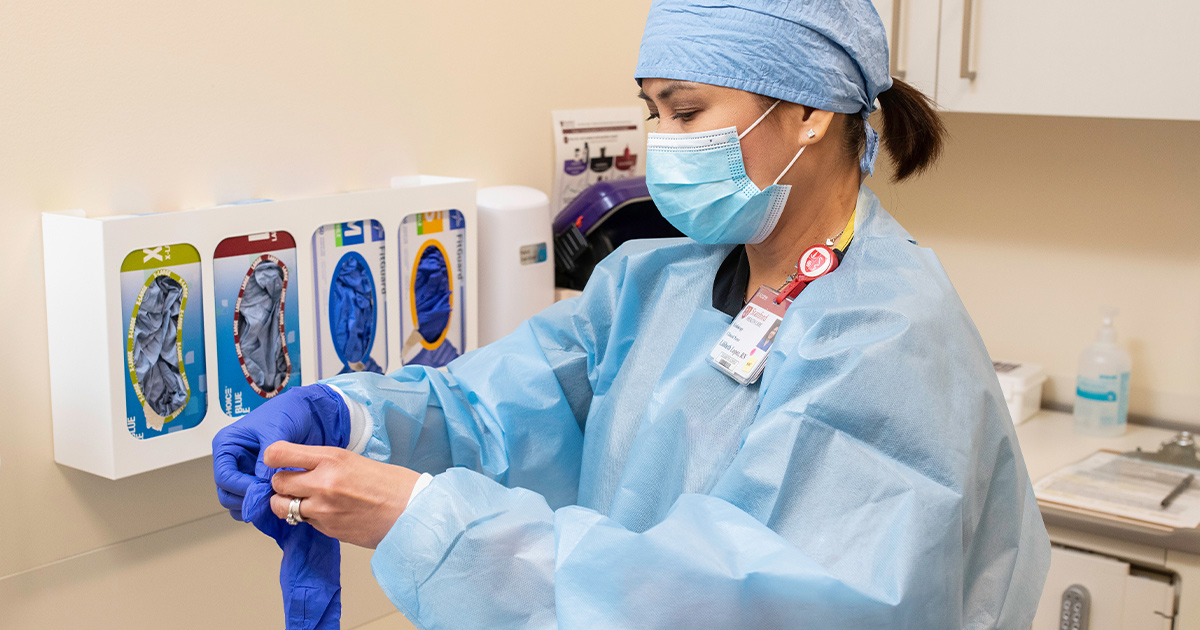Chest Wall Surgery Program

Leaders in Chest Wall Surgery
The Stanford Health Care Chest Wall Surgery Program offers you the most advanced diagnosis and treatment options for conditions of the chest wall, no matter how complex your condition.
Our compassionate, renowned doctors are pioneering new ways to bring you the best chest wall care.
875 Blake Wilbur Drive
Palo Alto, CA 94304
Phone: 650-498-6000
What We Offer You for Chest Wall Surgery
- Specialized expertise in treating all types of chest wall conditions.
- Advanced imaging services and testing for heart and lung function.
- Seamless coordination of care by a team of specialists.
- Easy access to care.
The Chest Wall Program is designed to diagnose and treat chest wall abnormalities. Chest wall abnormalities can be present at birth or develop over time. All of these conditions should be evaluated by a thoracic surgeon.
Pectus Excavatum
Pectus excavatum, also called sunken chest, is a condition where the breastbone sinks into the chest, causing a depression.
The depression may be in the center of the chest or more noticeable on one side. You may be born with a chest wall depression or it may develop as you grow. The depression may become more severe during adolescence.
Pectus Carinatum
Pectus carinatum, also called pigeon chest, is a condition where the sternum and ribs jut out. It occurs more often in males. It typically becomes more visible during early adolescence.
Surgical intervention is usually not recommended for patients with pectus carinatum since the condition is rarely associated with significant symptoms.
Poland Syndrome
Poland syndrome affects approximately 1/30,000 people. It can include:
- Absence of part or all of the muscles of the chest wall
- Absence of breast tissue or nipple deformities
- Fusion (syndactyly) or shortening (brachydactyly) of the fingers and toes
- Absent armpit hair and limited fat layer under the skin
Sternal Cleft
A sternal cleft is a gap in the sternum, also known as the breastbone, that can span part or the entire length of the bone.
It is a rare condition that can be associated with structural abnormalities of the heart and abdominal wall. The gap in the sternum may affect normal breathing. It can also fail to protect underlying organs, like the heart and lungs.
Reconstruction of the Chest Wall
The chest is one of the most common areas affected by major trauma. Trauma often happens in the form of rib fractures and soft tissue damage. While most simple rib fractures do not require surgical repair, certain complications may require surgery. Reasons for surgical repair include:
- Non-healing rib fractures
- Chest wall hernia (lung or diaphragm bulging)
- Breathing difficulty from instability
- Persistent/chronic rib pain
Tumors of the Chest Wall
We provide expert surgical care for patients with benign or cancerous tumors involving the chest wall.
Care is coordinated with cancer experts, since tumors may require treatment before or after surgery. Advanced imaging techniques and custom prostheses are used to achieve the best outcome while maintaining function and appearance.
Treatments
Treatments for Chest Wall Abnormalities
Your care is coordinated by an expert team, from evaluation to treatment to follow-up. Our goal is to help you achieve the best function and appearance.
We use diagnostic testing to determine the most appropriate treatment for your individual needs and condition. Diagnostic tests may include:
- X-Ray, MRI, or CT scan of the chest
- Cardiac echocardiogram
- Pulmonary function testing
- Allergy patch testing
If nonsurgical treatments during childhood did not produce the desired result, surgical treatment is generally recommended for severe cases and for patients with symptoms. We evaluate each patient for possible lung, heart, and other non-chest wall conditions to rule out any other causes of the symptoms.
Nuss Procedure
Nuss Procedure for Pectus Excavatum
The Nuss procedure is a minimally invasive surgical procedure to correct pectus excavatum. At Stanford Health Care, Dr. Leah Backhus performs the Nuss procedure for adult patients. During this procedure, small incisions are made on each side of the chest to allow the surgeon to insert a metal support bar underneath the sternum. This bar reverses the depression in the chest. In adult patients, the Nuss procedure often requires more than one bar to be placed. The bar is typically kept in place for 2-4 years. The bar removal procedure is done as a same day surgery.
Ravitch Procedure
Ravitch Procedure for Pectus Excavatum
The Ravitch procedure has historically been the technique used to correct pectus excavatum. The procedure requires a larger incision in the middle of the chest. A metal bar is placed to reverse the depression in the chest. It must remain in place for 6-12 months. The bar removal procedure is done as a same day surgery. The Ravitch procedure is still implemented today in modified form, leading to symptom improvement and patient satisfaction.
Your Care Team
Our team offers advanced procedures in thoracic surgery.

Your Doctors
Thoracic Surgeons
Thoracic surgeons specialize in the surgical operations of the chest, including the heart, lungs, and esophagus.
View All {0} Thoracic Surgeons »Stanford is an Academic Medical Center, which is a type of hospital setting where doctors teach the entire spectrum of medical education. Students range from beginning medical students to fully licensed and practicing doctors completing advanced sub-specialty training. Stanford Medicine is a partnership between Stanford University School of Medicine and Stanford Health Care. Since Stanford is a teaching hospital, you can expect to meet many providers and providers in training.
- Attending Physician: a doctor who supervises doctors in training or in medical school
- Fellow: a doctor doing postgraduate level work and specializing in care of patients with specific conditions
- Resident: a doctor who has graduated from medical school and is in training (also called “residency”) here at Stanford. A resident is also called an intern
- Medical Student: a student who is currently enrolled in medical school with the goal of becoming a doctor

Extended Care Team
Our team includes a range of professionals to ensure you get the complete care and support you need:
Advanced Practice Providers (APPs)
Physician assistants (PAs) and nurse practitioners (NPs) can provide thorough exams, write prescriptions, and help to prevent or treat any issues. Our APPs meet weekly to discuss patient needs.
Medical Assistants
Medical assistants work with our team to help provide care. They may prepare you for an examination, assist your doctor, or take vitals at the beginning of your appointment.
Patient Care Coordinators
Patient care coordinators help you with scheduling appointments and accessing your test results.
Patient Access Representatives
Patient access representatives can answer any questions you have about insurance coverage, assist you with applying for insurance, and refer you to a Stanford Health Care financial counselor.
Research Coordinators
Research coordinators help screen candidates for possible participation in clinical research trials. Our medical specialists are very involved in research efforts to advance the diagnosis and treatment of orthopaedic conditions.

Support Services
We help with the details so you can focus on your health and wellness. We offer a range of patient services and helpful information to coordinate the various aspects of your care:
The Stanford Health Care Chest Wall Surgery Program provides seamless access to all of our care services, from diagnostic evaluation to treatment to follow-up care. To learn more, please click the location nearest to you on the map.
For Referring Physicians
PHYSICIAN HELPLINE
Fax: 650-320-9443
Monday–Friday, 8 a.m.–5 p.m.
Stanford Health Care provides comprehensive services to refer and track patients, as well as the latest information and news for physicians and office staff. For help with all referral needs and questions, visit Referral Information.
You may also submit a web referral or complete a referral form and fax it to 650-320-9443 or email the Referral Center at ReferralCenter@stanfordhealthcare.org.
Are you a patient or physician interested in Chest Wall Surgery? Complete the form or make an appointment with one of our specialists by calling 650-498-6000.




